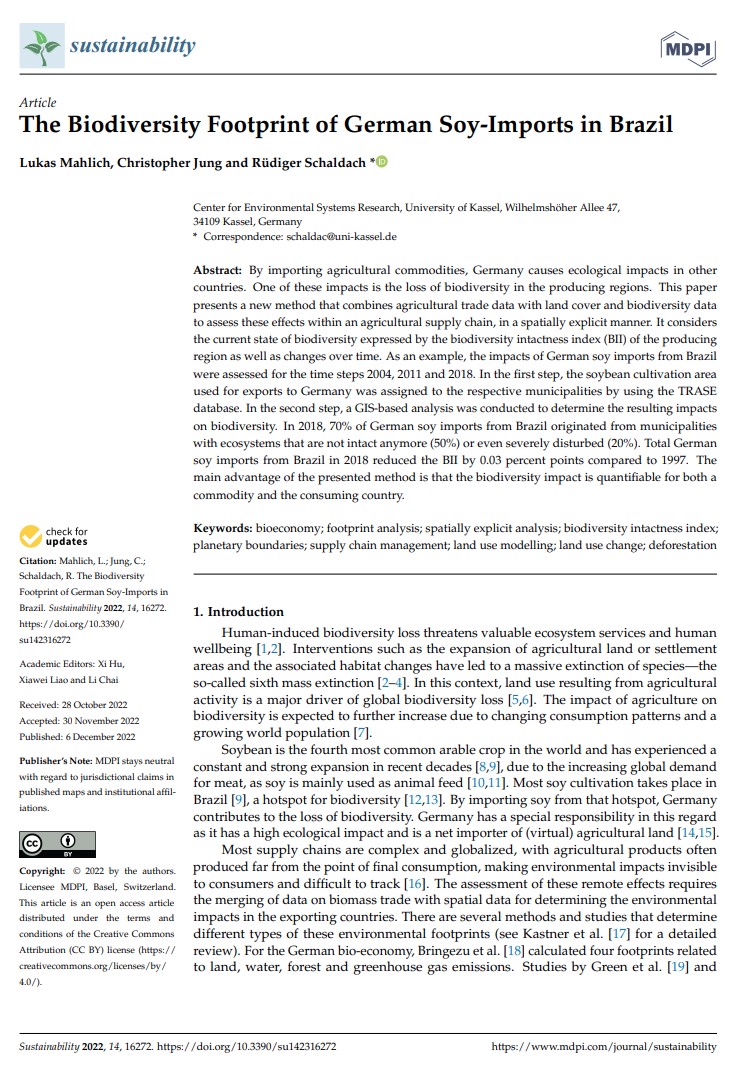By importing agricultural commodities, Germany causes ecological impacts in other countries. One of these impacts is the loss of biodiversity in the producing regions. This paper presents a new method that combines agricultural trade data with land cover and biodiversity data to assess these effects within an agricultural supply chain, in a spatially explicit manner. It considers the current state of biodiversity expressed by the biodiversity intactness index (BII) of the producing region as well as changes over time. As an example, the impacts of German soy imports from Brazil were assessed for the time steps 2004, 2011 and 2018. In the first step, the soybean cultivation area used for exports to Germany was assigned to the respective municipalities by using the TRASE database. In the second step, a GIS-based analysis was conducted to determine the resulting impacts on biodiversity. In 2018, 70% of German soy imports from Brazil originated from municipalities with ecosystems that are not intact anymore (50%) or even severely disturbed (20%). Total German soy imports from Brazil in 2018 reduced the BII by 0.03 percent points compared to 1997. The main advantage of the presented method is that the biodiversity impact is quantifiable for both a commodity and the consuming country.

